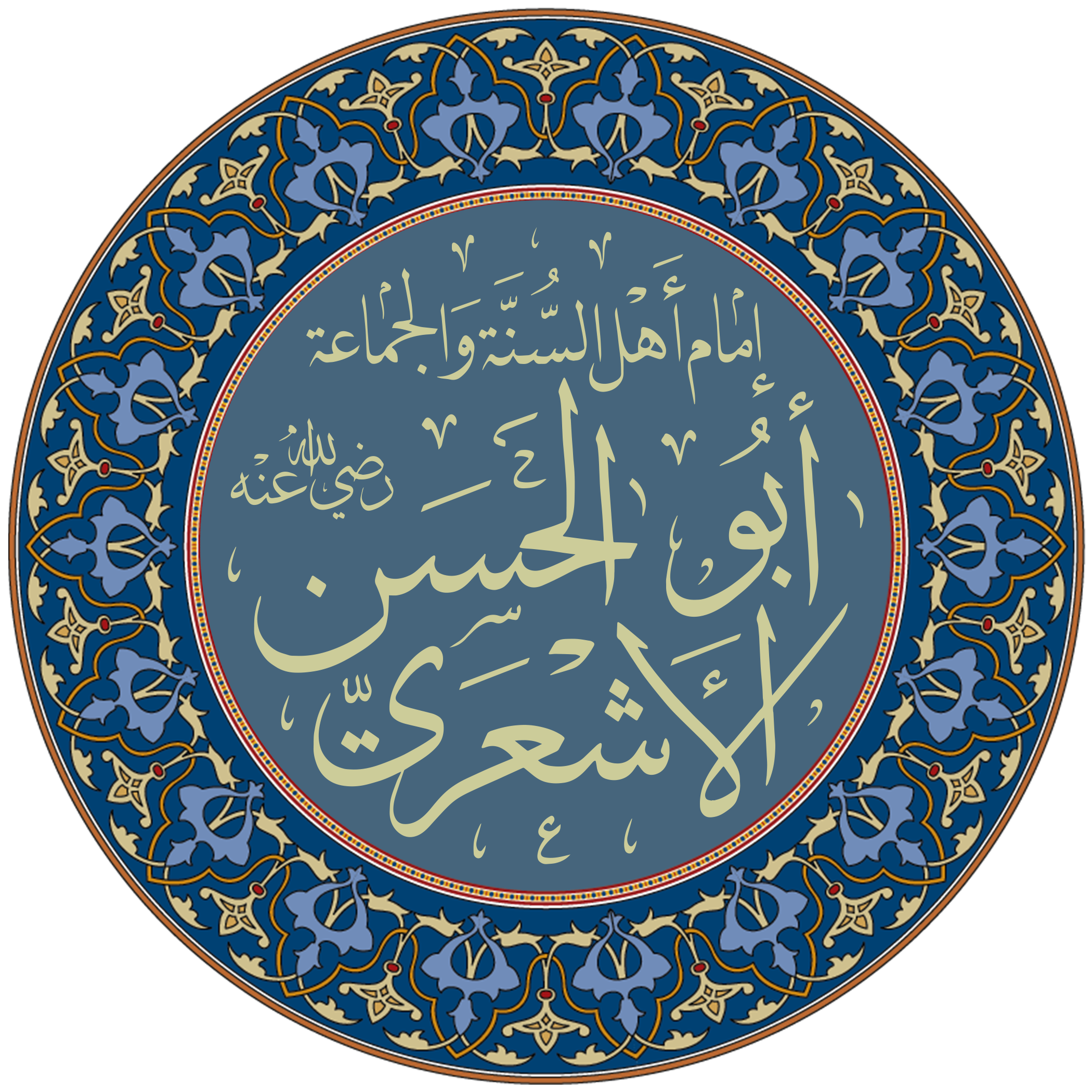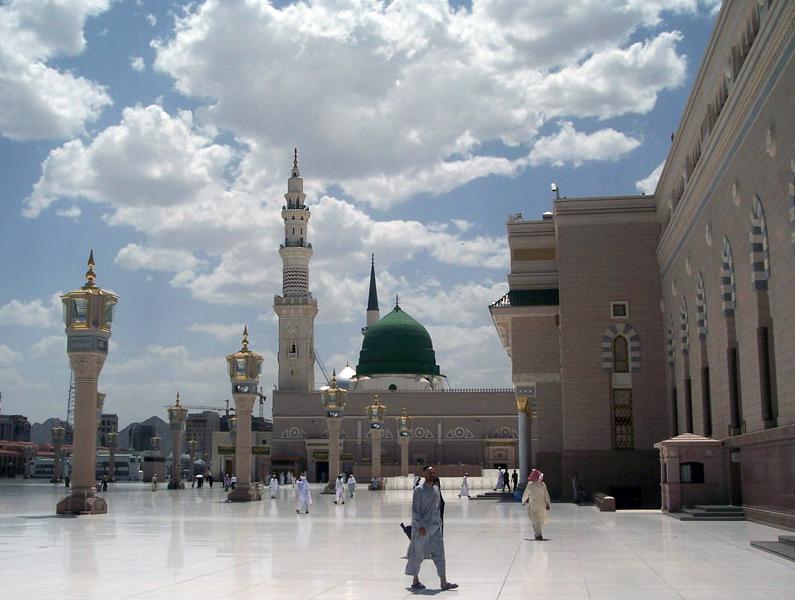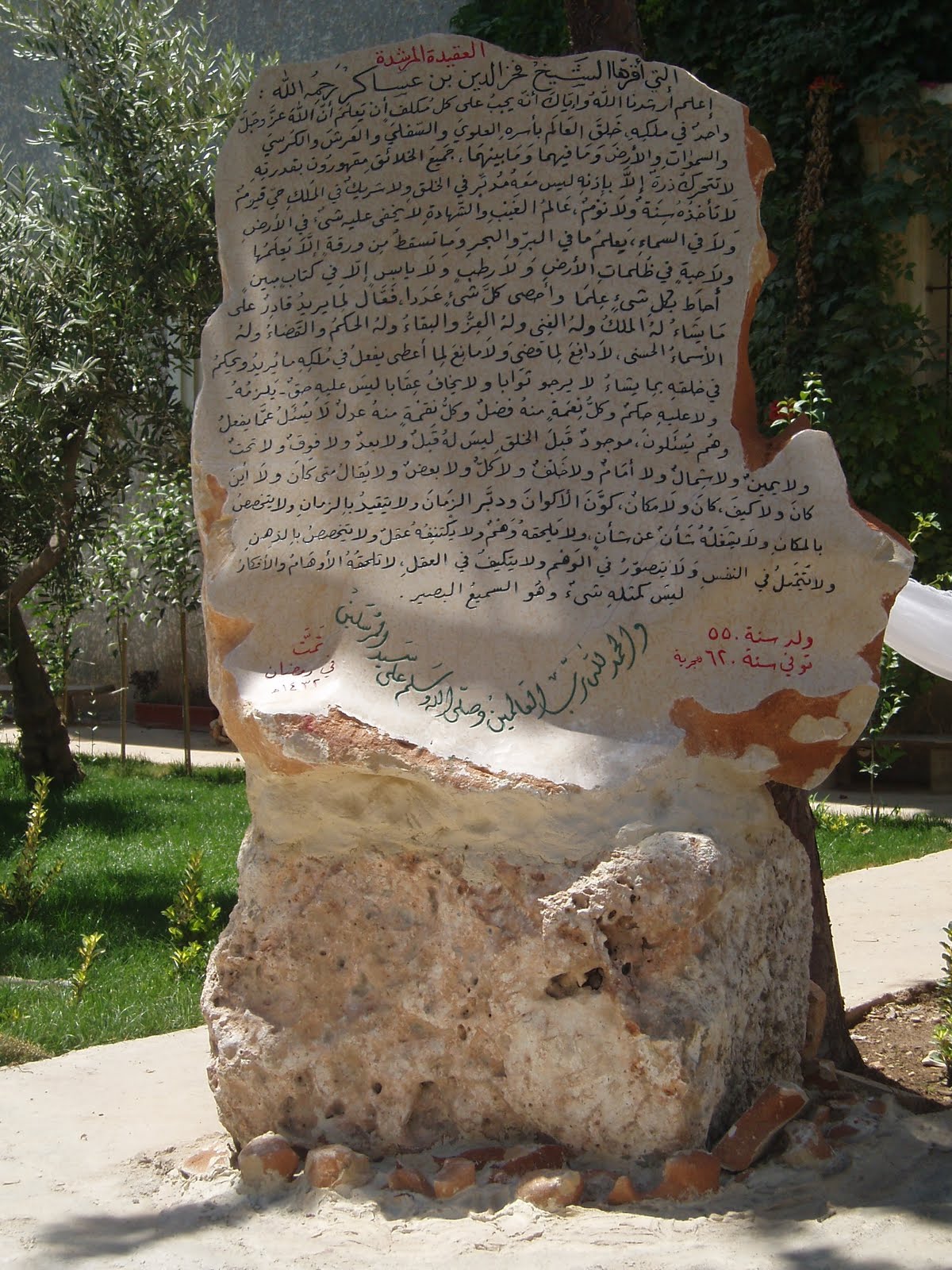1. Overview
Dhia' ul-Dīn 'Abd al-Malik ibn Yūsuf al-Juwaynī al-Shafi'ī (امام الحرمین ضیاءالدین عبدالملک ابن یوسف جوینی شافعیPersian, أبو المعالي الجوينيArabic, 17 February 1028 - 20 August 1085), commonly known as al-Juwayni, was a prominent Persian Sunni scholar, renowned as the foremost jurisconsult, legal theoretician, and Islamic theologian of his era. He is widely recognized by the honorific title Imam al-Haramayn, meaning "leading master of the two holy cities," referring to Mecca and Medina.

Al-Juwayni achieved the esteemed status of a mujtahid in the fields of fiqh (Islamic jurisprudence) and Usul al-fiqh (principles of Islamic jurisprudence). He is highly celebrated as one of the most significant and influential thinkers within the Shafi'i school of orthodox Sunni jurisprudence, often regarded as the virtual second founder of the Shafi'i school, following its original founder, Imam al-Shafi'i. Additionally, he was considered a major figurehead within the Ash'ari school of theology, where he was ranked equal to its founder, Imam al-Ash'ari. His profound impact on Islamic scholarship earned him further honorific titles such as Shaykh of Islam, The Glory of Islam, and The Absolute Imam of all Imams.
As a Mutakallim, a scholar dedicated to defending and elucidating theological principles, al-Juwayni spent his life grappling with complex theological issues, including the functions of reason and revelation, the nature of heaven and hell, and the intricacies of human actions. He was known for his firm and unyielding stance against legal speculation, asserting that all answers to legal debates could be found within the sacred texts. While primarily a follower of the Sunni tradition, his commentaries sometimes incorporated ideas from the Mu'tazilah school, leading to a controversial reputation among intellectuals. Some scholars identified him with Ahlussunnah wal Jama'ah (Ash'ariyah), others with Mu'tazilah, and some saw him as navigating a middle path, particularly concerning human actions, between the Jabriyah and Qadariyah schools of thought.
2. Early Life and Background
Al-Juwayni's early life and intellectual development were shaped by his distinguished family lineage and the tumultuous historical context of his time.
2.1. Birth and Family Background
Al-Juwayni was born with the full name Abul Ma'ali 'Abdul Malik bin 'Abdillah bin Yusuf bin Muhammad bin 'Abdillah bin Hayyuwiyah Al-Juwaini An-Naisaburi. He also bore the honorific title of Dhia' ul-Dīn. There is a slight discrepancy among historians regarding his birth date; while some sources state February 17, 1028 CE, others, like Ibnul Atsir, Ibnul Jauzi, and Ibnu Taghri Bardi, suggest he was born in 417 AH, with the majority indicating his birth on the 18th of Muharram, 419 AH, corresponding to February 22, 1028 CE. He was born in Bushtaniqan, a village on the outskirts of Naysabur (modern-day Razavi Khorasan Province, Iran), near the village of Juwain (Jowayin County).
Al-Juwayni was born into a family deeply rooted in legal scholarship. His father, Abu Muhammad 'Abdullah bin Yusuf bin 'Abdillah bin Yusuf Al-Juwaini, was a renowned scholar and a leading figure in the Shafi'i community, serving as an imam in Tafsir, fiqh, adab (literature), and the Arabic language. His father was born and raised in Juwain village, learning adab from his own father and Abu Ya'qub, fiqh from Abu Thayyib Ash-Sha'luki, and hadith from Al-Qaffal Al-Marwazi. Many prominent scholars, including al-Juwayni himself, studied under his father, who also authored numerous works in various fields before his death in Dzul Qa'dah 438 AH. Al-Juwayni's mother was a pious and kind slave woman, purchased by his father with earnings from his diligent work.
His family's scholarly influence extended to his uncles as well. Syaikh Abul Hasan 'Ali bin Yusuf bin 'Abdillah bin Yusuf, one of his uncles, was a significant scholar of his time, known as the Shaykh of Hejaz. He studied under his brother, Abu Muhammad Al-Juwaini, as well as Abu Nu'aim, Abu 'Abdurrahman As-Sulami, and Ibnu Syadzan, among others. Notable scholars like Imam Muhammad bin Fadlal Al-Furawi and Zahir were among his students. He passed away in Dzul Qa'dah 463 AH. Another uncle, Abu Sa'id 'Abdush Shamad Al-Juwaini, was respected for his piety, diligence in Tahajjud prayers, and frequent recitation of the Quran. Al-Juwayni also had a son, Syaikh Abul Qasim Mudhaffar bin Imam Al-Haramain 'Abdul Malik Al-Juwaini, who became a distinguished scholar, educated under his father's guidance. He died in Sha'ban 493 AH, reportedly due to poisoning.
2.2. Historical Context
Al-Juwayni lived during a period of significant political, social, and religious upheaval across the Islamic world, particularly in Khurasan, where his birthplace, Naysabur, served as the capital. This fertile region was a constant battleground for various dynasties. The Saffarid dynasty briefly controlled it from 254 AH until its fall to the Samaniyah dynasty in 290 AH. Subsequently, the Ghaznawiyah, Buwaihiyah, and Saljukiyah dynasties successively seized control. Each change in power often brought a shift in prevailing ideologies.
During al-Juwayni's lifetime, the Turkic Seljuks were rapidly expanding their influence into eastern Iran. Tughril Beg, who became the Seljuk Sultan, was a follower of the Mu'tazilah theological school and the Hanafi legal school. This created significant tension with the Ash'ari theological school, which was closely associated with the Shafi'i school and was gaining prominence. When Tughril Beg appointed a new vizier in Naysabur, this official, Al-Kundduri, a Karramite, issued a decree to publicly curse Abu al-Hasan al-Ash'ari during Friday prayers and to imprison his adherents. This hostile environment directly impacted al-Juwayni and other Ash'ari and Shafi'i scholars, forcing many to flee their homes.
3. Education and Intellectual Development
Al-Juwayni's intellectual journey was marked by rigorous study under numerous esteemed scholars and a continuous pursuit of knowledge that shaped his profound theological and jurisprudential perspectives.
3.1. Teachers and Intellectual Influence
Al-Juwayni received his early education within his family, primarily under the tutelage of his father, Abu Muhammad Al-Juwaini, and other leading scholars in Naysabur. From his father and other teachers, he delved into various fundamental religious subjects, including Arabic grammar and its eloquence (balagha), the Quran, the hadith, fiqh (Islamic law), khilaf (the art of disagreements), and principles of Islamic jurisprudence. He diligently studied all of his father's books, such as Sharh al-Muzani, Sharh usul al-Shafi'i, Mukhtasar al-Mukhtasar, al-Tafsir al-Kabir, and al-Tabsirah, which provided him with a strong foundation in Shafi'i law.
His education extended beyond his father's direct instruction. He studied Islamic theology and legal theory under Abu al-Qasim al-Isfarayini, the son of Abu Ishaq al-Isfarayini. For hadith studies, he learned from Al-Bayhaqi. He received further Arabic grammatical instruction from Abu al-Hassan 'Ali b. Fadl b. 'Ali al-Majashi, while Abu 'Abdullah al-Khabbazi taught him Quranic exegesis. In the field of hadith transmission and dissemination, al-Juwayni acquired knowledge from various sources, including Abu Bakr Ahmad b. Muhammad al-Tamimi, Abu Sa'd 'Abd al-Rahman b. Hamdan al-Nadrawi, Abu Hassan Muhammad b. Ahmad al-Muzakki, Abu Abdullah Muhammad b. Ibrahim al-Tarrazi, and Abu Muhammad al-Jawharri. He also received legal instruction from prominent Shafi'i leaders in Marw, such as al-Qadi Abu ali Husayn b. Muhammad b. Ahmad al-Marw al-Rudhi and al-Qasim al-Furani.
3.2. Intellectual Journey and Formation of Thought
Al-Juwayni's academic pursuits progressed rapidly. Upon his father's death in 438 AH (1047 CE), when he was not yet 20 years old, he inherited his father's teaching position in the scholarly assemblies, a testament to his early intellectual maturity. This new role did not deter him from continuing his own studies under other scholars of the time. He attended the school of Imam Al-Baihaqi in Naysabur to deepen his knowledge of Shafi'i fiqh and hadith, and he also participated in the scholarly gatherings of Al-Kabbadzi for Quranic sciences.
His thorough understanding of the Shafi'i legal tradition enabled him to offer his own ijtihad (independent reasoning in Islamic law). Following his acquisition of a firm foundation in the fundamental disciplines of Islamic studies, al-Juwayni began to broaden his intellectual horizons, seeking to forge greater religious credentials within the Ash'ari theological school and the Shafi'i legal school. He embarked on extensive travels, visiting major intellectual centers such as Isfahan, Baghdad, and the Hejaz. In Baghdad, he studied under Abu Muhamamd Al-Jauhari and extensively reviewed the theological works of Al-Baqillani. In Isfahan, he learned from Abu Nu'aim Al-Isfahani, the author of the renowned book Hilyatul Auliya. These travels provided him with opportunities to meet numerous academics and further his knowledge in fiqh and usul al-fiqh. Through these experiences, al-Juwayni established a robust intellectual and pedagogical legacy within the Shafi'i legal tradition. However, he later expressed regret on his deathbed for the time he had spent on theological disputes, particularly those related to Ash'ari theology.
4. Major Activities and Travels
Al-Juwayni's life was marked by significant travels and professional activities, often necessitated by political and religious circumstances, which ultimately contributed to his widespread recognition.
4.1. Persecution and Exile
Al-Juwayni was compelled to leave Nishapur by force around 443-447 AH (1051-1055 CE) due to the Karramite governor Al-Kundduri's decree. This decree mandated the public cursing of Abu al-Hasan al-Ash'ari during weekly Friday prayers and the imprisonment of his followers. As a prominent Ash'ari and Shafi'i scholar, al-Juwayni was among those who were forced to flee secretly. Other notable scholars who also sought refuge included Abu Sahl al-Bastami, Al-Furati, Al-Qushayri, and Al-Bayhaqi, along with many other Shafi'i scholars. This persecution stemmed from the political climate under Tughril Beg, the Seljuk Sultan, who, being a follower of the Mu'tazilah and Hanafi schools, had forbidden al-Juwayni from preaching Ash'ari doctrines in Nishapur.
4.2. Activities in the Holy Cities


In search of a new home and intellectual haven, al-Juwayni fled to Mecca and Medina in the Hejaz region. He resided in these holy cities for approximately four to five years, starting around 450 AH (1058 CE). During this period, he dedicated himself to teaching and writing scholarly works. His profound scholarship and intellectual contributions gained widespread acclaim among the scholars of the Hejaz, leading to him acquiring the prestigious title Imam al-Haramayn, meaning "leading master of the two holy cities". This title reflected his esteemed position as a religious authority and leader in both Mecca and Medina, where he also led prayers. He received generous hospitality, partly due to his father's renowned reputation among the scholarly elite and his own status as an exiled intellectual.
4.3. Return to Naisabur and Educational Activities
After his influential period in the holy cities, al-Juwayni decided to return to Naysabur in 455 AH (1063 CE), as the political situation in his homeland had stabilized. His scholarship and growing reputation had attracted a large following. Upon his return, Nizam al-Mulk, the powerful vizier of the Seljuk Empire and founder of the Shafi'i madrasa in Naysabur, invited al-Juwayni to serve as an undisputed grand mufti. He was appointed headmaster of the newly constructed and prestigious Nizamiyya school in Naysabur.
Al-Juwayni remained at the Nizamiyya Madrasah for approximately 23 to 30 years, until his death. In this prominent institution, he played a crucial role in training and preparing the next generation of Shafi'i jurists and Ash'ari theologians. It is believed that the majority of his significant works were produced during this productive period following his return from Mecca and Medina, as he dedicated his life to studying and writing influential treatises on Muslim governance and various Islamic sciences.
5. Students and Influence
Al-Juwayni was a highly influential teacher and mentor, with a vast number of students who carried forward his intellectual legacy. He taught over 400 students, many of whom went on to become world-renowned scholars in their own right.
His most famous students include:
- Abu Hamid al-Ghazali
- Al-Kiya al-Harrasi
- Abu al-Qasim al-Ansari
- Abd al-Ghafir al-Farsi
- Abu al-Hasan al-Tabari
- Abu al-Hasan al-Bakhirzi
- Ibn al-Qushayri (son of Al-Qushayri)
- Ahmad bin Muhammad bin Al-Mudhaffar
- Abul Ma'ali Mas'ud bin Ahmad bin Muhammad bin Al-Mudhaffar
- Abul Hasan Ath-Tha'i
- Abu Hafsh As-Sarkhasi Asy-Syirazi
Among all his pupils, Al-Ghazali stands out as the foremost and most influential, becoming one of the most significant scholars in Islamic history. Al-Juwayni held al-Ghazali in extremely high regard, as evidenced by his famous remarks:
- "Al-Ghazali is a quenching sea in which you can drown in."
- "You buried me while I am still alive. Can't you wait until I'm dead?" (By this, al-Juwayni implied that al-Ghazali's intellectual contributions and books had already surpassed his own, even during his lifetime).
Al-Juwayni's teachings and the intellectual environment he fostered at the Nizamiyya Madrasah profoundly shaped these students, ensuring the continuation and development of the Shafi'i legal and Ash'ari theological traditions.
6. Scholarly Contributions and Works
Imam Al-Haramain was a highly prolific scholar, authoring numerous works across diverse fields of Islamic knowledge. His writings are considered foundational texts in Islamic jurisprudence and theology.
6.1. Theology and Kalam
In the fields of Islamic theology (Aqidah, Usuluddin) and Kalam (speculative theology), al-Juwayni made significant contributions. His major works include:
- Al-Irshad ila Qawa'idil Adillah fi Ushulil I'tiqad (A Guide to Conclusive Proofs for the Principles of Belief), often simply known as Al-Irshad, is considered a major classic of Islamic theology. This book aimed to clarify what could be explained and how, clearly presenting his thoughts.
- Al-Shamil fi Ushuliddin (Summa on the Principles of Religion)
- Al-'Aqidatun Nidhamiyah (The Nizami Creed), also known as Al-'Aqida al-Nizamiyya
- Luma' al-Adilla fi Qawa'id 'Aqā'id Ahl al-Sunna (Flashes of Proof Concerning the Principles of the Doctrines of the People of the Sunna)
- Kitabu Asma'illahil Husna' (Book of God's Most Beautiful Names)
- Risalah fi Ushuliddin (Treatise on the Principles of Religion)
- Syifa'ul Ghalil (Healing for the Thirsty)
- Al-Karamat (The Miracles)
- Mukhtasharul Isrsyad (Summary of Al-Irshad)
6.2. Usul al-Fiqh
Al-Juwayni made key theoretical advancements and authored important writings in the field of Usul al-fiqh (principles of Islamic jurisprudence). He also focused on complex issues within legal theory, such as the concept of Repeal (naskh). His notable works in this area include:
- Al-Burhan, considered one of the four main books in this science.
- Al-Talkhis (The Summary)
- Al-Waraqat fi Ushulil Fiqh (The Leaves on the Principles of Jurisprudence), often simply Al-Waraqat.
- Kitabul Mujtahidin (Book of the Mujtahids)
- Risalatun fit-Taqlid wal Ijtihad (Treatise on Emulation and Independent Reasoning)
- At-Tuhfah (The Gift)
6.3. Fiqh
Within Islamic jurisprudence (Fiqh), al-Juwayni's contributions were substantial, including his magnum opus:
- Nihayat al-Matlab fi Dirayat al-Madhhab (نهاية المطلب في دراية المذهبArabic, "The End of the Quest in the Knowledge of the [Shafi'i] School"). This work is considered his magnum opus, which Ibn Asakir stated had no precedent in Islam.
- As-Silsilah fi Ma;rifatil Qaulain wal Wajhain 'ala Madzhabisy Syafi'i (The Chain in Knowing the Two Sayings and Two Aspects in the Shafi'i Madhhab)
- Risalatun fil Fiqh (Treatise on Fiqh)
- Mukhtasharun Nihayah (Summary of Nihayah)
- Ghiyath al-Umam (Relief of the Nations)
- Mughith al-Khalq (Helper of Creation)
6.4. Comparative Madhhabs and Other Fields
Al-Juwayni also authored works that compared different schools of Islamic law (Madhhabs) and explored other diverse areas of knowledge:
- Ad-Durratul Madliyah fima Waqa'a min Khilafin bainasy Syafi'iyah wal Hanafiyah (The Luminous Pearl on the Differences between the Shafi'is and Hanafis)
- Mughitsul Khalq fi Tarjihil Qaulil Haq (Helper of Creation in Preferring the True Saying)
- Al-Asalibu fil Khilafiyat (Methods in Disputed Matters)
- Ghanyatul Mustarsyidin fil Khilaf (The Wealth of Seekers in Disputed Matters)
In other fields, his works include:
- Kitabun fin Nafs (Book on the Soul)
- Kitabul Arba'in fil Hadits (Book of Forty Hadith)
It is important to note that the book Fara'id al-Simtayn, a collection of traditions of the Holy Household, is sometimes mistakenly attributed to Abd'al Malik al-Juwayni. However, it was in fact authored by another Sunni scholar, Ibrahim bin Muhammad bin Himaway al Juwaynim, who died in 1322 CE (722 AH).
7. Thought and Theological Perspectives
Al-Juwayni, a prominent Sunni jurist and Mutakallim, was known for his deep engagement with theological principles and his firm, rational approach to Islamic law. He believed that the sacred texts held the answers to any possible legal debate, asserting that the law should never be left to mere speculation. He was proficient in both Shafi'i legal theory and Ash'ari theology.
7.1. Views on God's Attributes and Human Actions

Al-Juwayni's theological ideas often sparked debate. Regarding the nature of the universe, he held a nisbi (relative) view, meaning its existence is dependent on God. This perspective closely aligned with some Mu'tazilah scholars, such as 'Abdul Jabbar and Abul Huzail.
On the concept of the Divine Word (God's speech), al-Juwayni concurred with Abu al-Hasan al-Ash'ari, a leading figure of the Ahlussunnah wal Jama'ah. Similarly, concerning the possibility of seeing God, al-Juwayni agreed with al-Ash'ari that God can be seen on the Day of Judgment, considering this vision to be the greatest of all blessings.
Regarding human actions, al-Juwayni articulated a nuanced position. He posited that humans possess the freedom to direct the power granted to them by God according to their will and desire. However, he emphasized that, in essence, humans cannot act without the enabling power of God. This view sought a middle ground between the extreme determinism of the Jabriyah and the absolute free will asserted by the Qadariyah.
7.2. Theological Debates and Evaluation
Al-Juwayni's understanding of divine justice also set him apart. He defined God's justice as His wisdom in punishing sinners. This differed from the Mu'tazilah view, which asserted that God's actions are always aimed at human benefit and good. It also diverged from the more absolute stance of the Ahlussunnah wal Jama'ah, which maintained that God's will is entirely sovereign and He may do as He pleases.
Despite his deep engagement with Ash'ari theology, al-Juwayni later expressed regret on his deathbed for the time he had spent on theological disputes. His willingness to engage with and, at times, align with Mu'tazilah thought on certain issues made him a controversial figure, with some scholars identifying him as an Ash'ari, others as a Mu'tazilah, and still others as one who trod a middle path between various theological schools. This intellectual independence, while controversial, highlights his critical approach and his dedication to rigorous reasoning in understanding Islamic doctrines.
8. Evaluation and Legacy
Al-Juwayni's intellectual prowess and profound contributions to Islamic scholarship were widely recognized by his contemporaries and subsequent generations of scholars, solidifying his enduring legacy.
8.1. Positive Evaluation
Al-Juwayni received immense praise and recognition for his intellectual achievements, teaching, and overall contributions to Islamic thought. Ibn Asakir, a prominent historian, lauded him with the following words: "the Glory of Islam, absolute Imam of all imams, main authority in the Law, whose leadership is agreed upon East and West, whose immense merit is the consensus of Arabs and non-Arabs, upon the like of whom none set eyes before or after."
Al-Kawthari remarked that al-Juwayni's work "forms the connecting link between the respective methods of the Salaf and Khalaf," indicating his pivotal role in bridging earlier and later scholarly traditions. Al-Bakhirzi drew extensive comparisons, likening al-Juwayni to Al-Shafi'i and Al-Muzani in jurisprudence, Al-Asma'i in manners, Al-Hasan al-Basri in preaching eloquence, and Al-Ash'ari in speculative theology. To this, Ibn Asakir responded, "Truly he is above that by far," emphasizing al-Juwayni's unparalleled stature. Ibn al-Subki further affirmed his unique clarity, stating, "Whoever thinks that there is anyone in the Four Schools that comes near his clarity of speech has no knowledge of him."
Beyond these scholarly commendations, al-Juwayni was bestowed with several honorific titles reflecting his high integrity, noble personality, and extensive knowledge. These included Abul Ma'ali, acknowledging his high stature; Imam Al-Haramain, recognizing his role as a teacher, fatwa issuer, and author in Mecca and Medina for four years, where he also served as an imam; and Fakhrul Islam (The Pride of Islam), signifying his status as a source of pride for the entire Muslim community.
8.2. Criticism and Controversy
Despite widespread acclaim, al-Juwayni's theological views attracted some criticism and controversy. His willingness to engage with and, at times, draw parallels with certain Mu'tazilah ideas, particularly regarding the nature of the universe and human actions, led to debates among scholars about his precise theological affiliation. Some identified him strictly as an Ash'ari, while others perceived elements of Mu'tazilah thought or a deliberate middle path between the Jabriyah and Qadariyah schools. Furthermore, al-Juwayni himself, towards the end of his life, expressed regret for the time he had dedicated to theological disputes, suggesting a personal reflection on the complexities and potential pitfalls of such intellectual endeavors.
9. Death
After approximately 23 years of teaching at the Nizamiyya Madrasah in Naysabur, Imam Al-Haramain's health began to decline. He suffered from liver disease and experienced several bouts of illness. Eventually, he was brought to Bushtanikan, his birth village, where he passed away shortly thereafter. He breathed his last on the night of Tuesday leading into Wednesday, the 25th of Rabi'ul Akhir, 478 AH, which corresponds to August 20, 1085 CE.
His funeral was attended by an immense crowd, a testament to his widespread respect and influence. Following his death, his students demonstrated an unrestrained outpouring of sorrow, with four hundred of his over-zealous students mourning for days in Khurasan. Reflecting on his profound impact, Ibn Asakir remarked, "I believe that the marks of his hard work and striving in Allah's religion shall endure until the rising of the Hour."